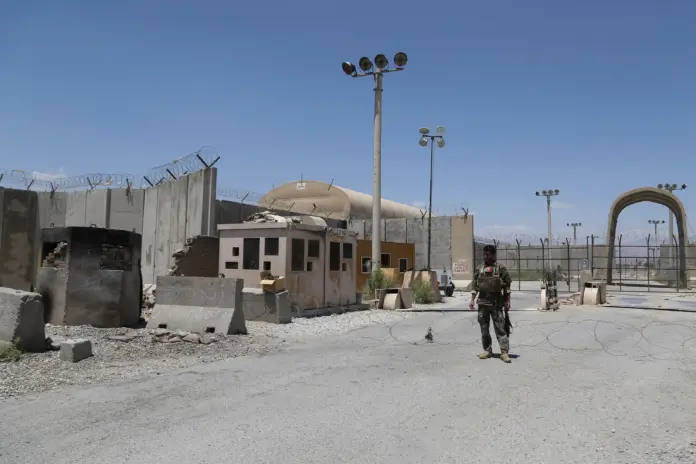Kabul closes the door on Trump’s return ambitions
In a sharp rebuke to Washington, the Afghan government declared on Sunday that any agreement to return the former U.S. airbase at Bagram is “impossible.” This categorical refusal comes just days after Donald Trump floated the idea of retaking control of the site, once the nerve center of American military power in the region.
“Even a single inch of Afghan soil is not up for negotiation,” stated Fasihuddin Fitrat, Chief of Staff at the Ministry of Defense, quoted by local media. Without naming the U.S. directly, his statement was clearly aimed at Trump, who had warned of unspecified “very bad things” if
Bagram base Donald Trump sits at the heart of a larger strategic and symbolic tug-of-war, reflecting the shifting balance of power in Central Asia — and the limits of American reach under a second Trump presidency.
Trump’s threats and the new Afghan defiance
During a press conference in the U.K. alongside British Prime Minister Keir Starmer, Trump shocked observers by suggesting that the U.S. should retake Bagram. The base, which was abandoned in July 2021 under Joe Biden but as part of a 2020 deal brokered by Trump himself, remains a sore point in U.S. military history.
“One of the reasons we want that base back is because, as you know, it’s just an hour from where China manufactures its nuclear weapons,” Trump claimed. The logic is telling: in Trump’s transactional worldview, geostrategy trumps sovereignty, and the U.S. retains an implicit right to reclaim what it once held—especially if it helps contain China.
Later, on his social platform Truth Social, Trump escalated his rhetoric: “If Afghanistan doesn’t return Bagram airbase to those who built it — the United States of America — VERY BAD THINGS WILL HAPPEN!!!”
A symbolic battlefield of post-American Afghanistan
The Taliban, now fully entrenched in power since the summer of 2021, view Bagram not merely as a military asset, but as a national symbol. Once the logistical hub of a two-decade-long occupation, its reclamation marks the erasure of U.S. presence in the country.
“We don’t need it,” Fitrat said bluntly. This curt dismissal of American intentions suggests a new confidence in Kabul — bolstered by regional realignments, particularly growing ties with China, Russia, and Iran. The idea of entering into any deal with Washington, especially under Trump’s tone of threat, is diplomatically toxic for the Taliban leadership.
The Bagram base Donald Trump standoff is no longer about military logistics. It’s about power, pride, and precedent. Trump may want a quick deal, but Kabul is playing a longer, ideological game.
Will Trump act or posture?
Pressed by journalists at the White House on whether he would send troops to retake the base, Trump deflected: “We’re not going to talk about that, but we are in negotiations. We want that base back. Quickly. Immediately. And if they don’t give it, you’ll find out what I plan to do.”
The ambiguity is deliberate. Trump’s style has always blended bravado with plausible deniability. But in this case, the Taliban’s response is clear: no base, no talks, no compromise. Whether Trump’s threats are bluster or prelude to action remains unclear — but the geopolitical context has changed. Afghanistan is no longer a client state. It’s a defiant, if pariah, actor on its own terms.
The end of American extraterritorial illusions?
The refusal to return Bagram base to Donald Trump is more than a diplomatic standoff — it signals the definitive collapse of America’s old model of forward-deployed dominance. The Taliban have sent a message not only to Trump, but to the broader international community: Afghanistan is no longer a chessboard for imperial ambitions.
What remains to be seen is whether Trump, once again wielding power, will escalate — or whether, beneath the threats, lies the acknowledgment that Washington can no longer dictate terms in lands it once occupied.



